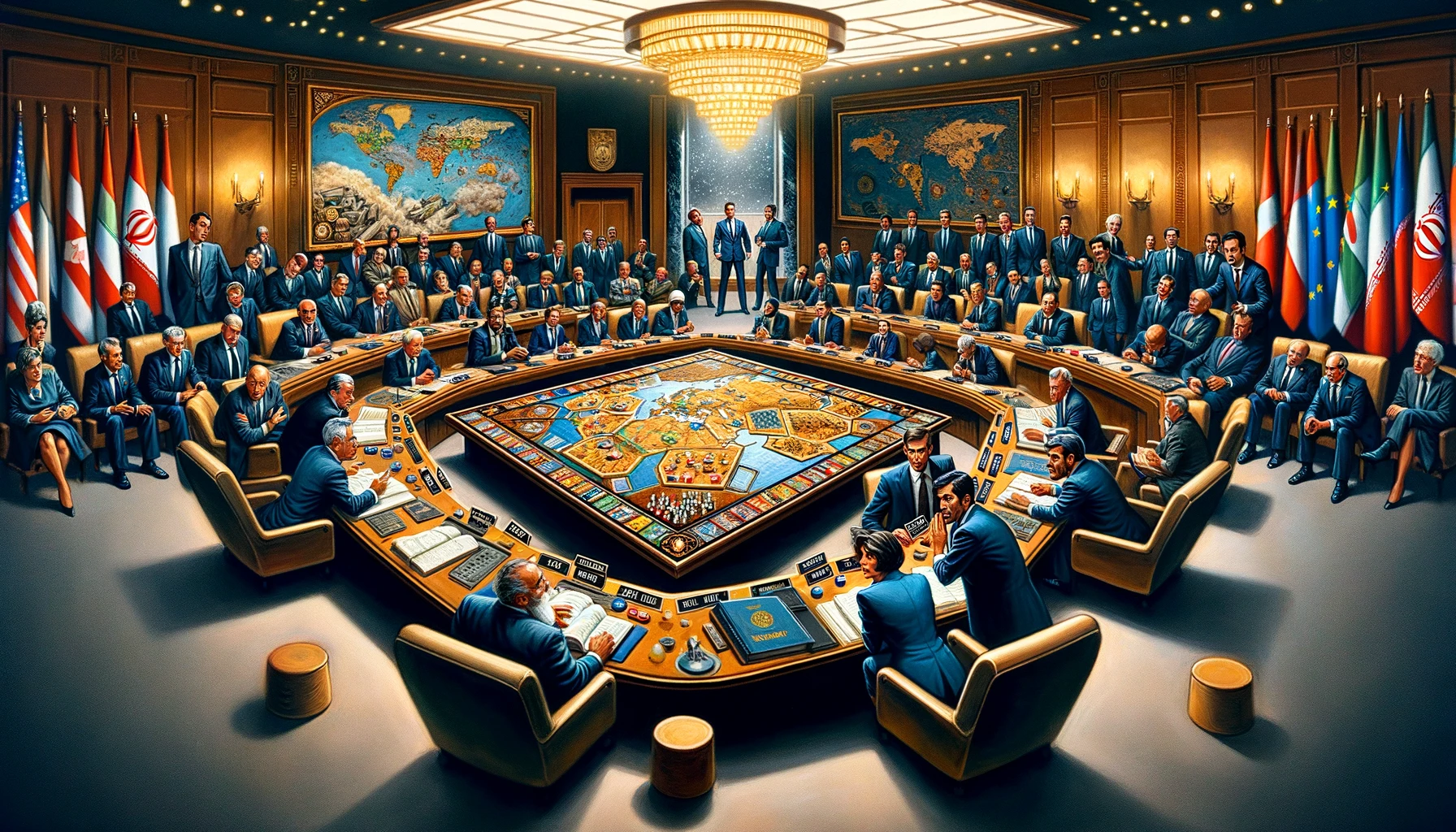In an apparent blunder of international proportions, Iran has incited a flurry of global finger-wagging not merely for its use of force, but for its failure to consult the ever-evolving rulebook of who gets to strike first in the complex chess game of international politics.
The episode unfolded when Iran, responding to a provocative action by Israel, launched its own series of strikes, evidently missing the crucial step of verifying whether it was their turn to do so according to the international community’s unwritten rules. “It’s like they’re playing Monopoly but forgot to pass Go and collect $200,” quipped a European diplomat, shaking his head at the diplomatic faux pas.
This oversight prompted a quick reaction from Western capitals, where leaders lined up to express their dismay—not so much at the act of retaliation itself, but at Iran’s poor timing and sequence of response. “There’s a sequence to these things,” explained the U.S. Secretary of State during a press briefing. “You can’t just lash out and expect not to be lectured on proper procedure.”
The incident has spurred calls for a new international seminar, “Timing in Tensions: When to Hit Back, If Ever,” aimed at clarifying the murky waters of acceptable self-defense. The proposed curriculum includes modules on “Assessing Your Place in the Global Hierarchy” and “Strategic Waiting: How to Bide Your Time Until You’re Allowed to Respond.”
Meanwhile, media pundits have had a field day, with one prominent news anchor describing Iran’s move as “a rookie error in the major league of geopolitics.” Panel discussions have focused not only on the legality of the strikes but on the pressing need for a publicly accessible timetable, clearly outlining which countries are currently in the ‘strike-allowed’ phase of their international relations cycle.
In response to the backlash, a spokesperson for Iran expressed confusion and frustration: “We were under the impression that defending one’s country was always in season. We did not realize there were blackout dates.”
As the debate rages on in op-ed pages and TV studios around the world, some are calling for a more transparent approach to international conflict management. Suggestions include a publicly posted schedule, possibly maintained by the UN, detailing who can strike whom and when, complete with a Google Calendar invite option for easier tracking.
For now, the international community remains in a huff, with many hoping that future conflicts will adhere more closely to the globally agreed-upon script, ideally one where everyone knows their lines and cues. As for Iran, perhaps a quick refresher on the rules—or a subscription to the International Conflict Newsletter—might prevent future diplomatic embarrassments.

